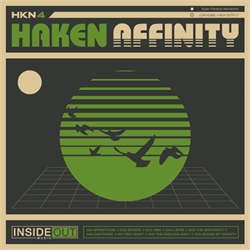Биография "Christian Castro"
<< Вернуться к списку всех песен "Christian Castro"
Cristian Castro (born Cristian Sáenz Castro or Cristian Valdez on December 8, 1974 in Mexico City) is a Grammy Award-nominated Mexican pop singer. He is referred to as «Christian Castro», «Cristian», or «El Gallito Feliz» (The Happy Little Rooster).
Castro began his singing career in 1992 with the release of Agua Nueva. The album received mixed reviews because Castro’s voice was said to be too low-pitched. The album was a big success nonetheless, with the smash hit «No podrás» topping the charts for weeks. After participating in various telenovelas and recording some albums as a teenager, Castro began his «internationalization» in 1993, starting with concerts in Puerto Rico. Castro dedicated a song to that country in his second album, Un Segundo En El Tiempo, titled «Puerto Rico» as a way of thanking the Puerto Rican public for supporting his career. He also modified his singing voice from the deep voice he employed in Agua Nueva to a softer one that he currently uses. His song, Nunca Voy A Olvidarte (I Will Never Forget You), launched his career. Castro became an international teen idol and sex symbol almost instantly after he began touring, and he began what has been a fructiferous international singing career. Cristian has also done voiceover theme songs for telenovelas such as La Mujer De Madera (The Woman of Wood), Angela, and Morelia. In 1994, Cristian released «El Camino Del Alma». The album hit, Mañana, meaning Tomorrow, a song composed by Mexican singer, Juan Gabriel which was titled, Mañana, Mañana. In 1995, he released the single Morelia for the novela of the same name. He also released a stand-alone single, Vuelveme a Querer which hit #2 on the Hot Latin Tracks (held off by Enrique Iglesias’ debut single Si Tu Te Vas). In 1996, Cristian released El Deseo De Oir Tu Voz (The Wish To Hear Your Voice) which featured hits such as Morelia, Amor, Amarte a Ti, and the title track.
In 1997, Castro left Fonovisa and began contract to BMG with the release of Lo Mejor De Mi. Famous Pianoist Raul di Blasio did the piano work for the song, Después De Tí…¿Qué? (After You…What?). The album was nominated «Best Latin Pop Album of the Year». Following the album’s success, Castro has made duets with other singers such as Olga Tañón, Grupo Limite, and José Alfredo Jiménez. Castro added the «h» to his first name at the release of his successful album, Mi Vida Sin Tu Amor in 1999 though «Christian Castro» is still not widely used as «Cristian Castro Castro», in fact, he went back to his original artistic name for use with his albums until 2004. In 2001, he released «Azul», which won «Best Latin Pop Album of the Year». After breaking up with his Argentinian girlfriend, Castro met a Paraguayan girl, Gabriela Bo, the daughter of a rich man. They were married in Asunción in 2003.
Apart from the reporter-slapping scandal, Castro is known for his accessibility to fans, and it’s not uncommon to see paparazzi photos showing him stopping to sign an autograph for a fan or taking pictures with them.
Shortly after his marriage to Gabriela Bo, Castro began to have marital problems. Bo returned to Paraguay, and Castro allegedly has been denied entry into that country by the Paraguayan immigration service. Rumors have spread about the reason of their split: some rumors point to him being homosexual; others say he had affairs with multiple women during his short marriage. Gabriela Bo used her fame as Cristian Valdez’s wife to promote her modeling career in Paraguay.
Castro divorced Bo, and four days later he married his Argentinian Jewish ex-girlfriend, Valeria Liberman, who is a lawyer. Castro had converted to Judaism during the wedding as Liberman is Jewish. His mother could not attend the wedding due to an accident on a circus where she fell down and had to stay in the hospital. Castro is said to be big fan of the legendary singer José José «El Principe de la Cancion». In fact, he considers him as his artistic godfather as stated in an interview on Sabado Gigante. Castro even invited him to his wedding with Liberman as one of the first guests. Castro was later called «El Gallito Feliz» possibly from his song «Gallito Feliz» from either the song he sang as a child or on his album, «Amar Es». In 2005, he released Galltio Feliz, a collection of his childhood songs, and Días Felices with «Amor Eterno» and «Sin Tu Amor» as the album hit.
In September 2006, he began conflicts with his mother. Veronica apparently did not approve of Valdez’s second marriage with Liberman and insisted he stayed with Bo due to Bo’s career as a model.
In June 26, 2007, Castro released his first mariachi album, El Indomable, which was produced by Vicente Fernandez, and released the single from the album, «Tu Retirada».
In late August People en Español revealed that the singer had separated from his second wife. An exclusive interview was published in the October issue with a coverline quoting «I Want to Be Free.» Despite personally speaking to the magazine, he later denied what he said in that interview and hiding the divorce suit he presented in Miami. Castro emphasized that he will always lie to the press about his personal life. «I don’t want the press to know about my personal life. I’m not here to share it; I’m here to sing. I will always lie to the press. Always expect lies about my personal life.» He has since admitted to filing for divorce, but withdrew papers the next day.[citation needed]. On Tuesday, 11 March 08, People en Espanol announced that Cristian and Valeria are finally divorcing. Valeria, and his ex-wife, Bo, have been accused of domestic violence. Castro announced that the divorce with Valeria has led him to bankruptcy. [1] A new album was to be released by December 2008. Castro described the album as returning to pop roots and will be homage to his strained-relatioship father. However as of January 2009, little has been known about it. He has also currently been at the «Latin Grammy Celebra Jose Jose» ceremony and is said to have made one of the best tributes to his idol.
Castro began his singing career in 1992 with the release of Agua Nueva. The album received mixed reviews because Castro’s voice was said to be too low-pitched. The album was a big success nonetheless, with the smash hit «No podrás» topping the charts for weeks. After participating in various telenovelas and recording some albums as a teenager, Castro began his «internationalization» in 1993, starting with concerts in Puerto Rico. Castro dedicated a song to that country in his second album, Un Segundo En El Tiempo, titled «Puerto Rico» as a way of thanking the Puerto Rican public for supporting his career. He also modified his singing voice from the deep voice he employed in Agua Nueva to a softer one that he currently uses. His song, Nunca Voy A Olvidarte (I Will Never Forget You), launched his career. Castro became an international teen idol and sex symbol almost instantly after he began touring, and he began what has been a fructiferous international singing career. Cristian has also done voiceover theme songs for telenovelas such as La Mujer De Madera (The Woman of Wood), Angela, and Morelia. In 1994, Cristian released «El Camino Del Alma». The album hit, Mañana, meaning Tomorrow, a song composed by Mexican singer, Juan Gabriel which was titled, Mañana, Mañana. In 1995, he released the single Morelia for the novela of the same name. He also released a stand-alone single, Vuelveme a Querer which hit #2 on the Hot Latin Tracks (held off by Enrique Iglesias’ debut single Si Tu Te Vas). In 1996, Cristian released El Deseo De Oir Tu Voz (The Wish To Hear Your Voice) which featured hits such as Morelia, Amor, Amarte a Ti, and the title track.
In 1997, Castro left Fonovisa and began contract to BMG with the release of Lo Mejor De Mi. Famous Pianoist Raul di Blasio did the piano work for the song, Después De Tí…¿Qué? (After You…What?). The album was nominated «Best Latin Pop Album of the Year». Following the album’s success, Castro has made duets with other singers such as Olga Tañón, Grupo Limite, and José Alfredo Jiménez. Castro added the «h» to his first name at the release of his successful album, Mi Vida Sin Tu Amor in 1999 though «Christian Castro» is still not widely used as «Cristian Castro Castro», in fact, he went back to his original artistic name for use with his albums until 2004. In 2001, he released «Azul», which won «Best Latin Pop Album of the Year». After breaking up with his Argentinian girlfriend, Castro met a Paraguayan girl, Gabriela Bo, the daughter of a rich man. They were married in Asunción in 2003.
Apart from the reporter-slapping scandal, Castro is known for his accessibility to fans, and it’s not uncommon to see paparazzi photos showing him stopping to sign an autograph for a fan or taking pictures with them.
Shortly after his marriage to Gabriela Bo, Castro began to have marital problems. Bo returned to Paraguay, and Castro allegedly has been denied entry into that country by the Paraguayan immigration service. Rumors have spread about the reason of their split: some rumors point to him being homosexual; others say he had affairs with multiple women during his short marriage. Gabriela Bo used her fame as Cristian Valdez’s wife to promote her modeling career in Paraguay.
Castro divorced Bo, and four days later he married his Argentinian Jewish ex-girlfriend, Valeria Liberman, who is a lawyer. Castro had converted to Judaism during the wedding as Liberman is Jewish. His mother could not attend the wedding due to an accident on a circus where she fell down and had to stay in the hospital. Castro is said to be big fan of the legendary singer José José «El Principe de la Cancion». In fact, he considers him as his artistic godfather as stated in an interview on Sabado Gigante. Castro even invited him to his wedding with Liberman as one of the first guests. Castro was later called «El Gallito Feliz» possibly from his song «Gallito Feliz» from either the song he sang as a child or on his album, «Amar Es». In 2005, he released Galltio Feliz, a collection of his childhood songs, and Días Felices with «Amor Eterno» and «Sin Tu Amor» as the album hit.
In September 2006, he began conflicts with his mother. Veronica apparently did not approve of Valdez’s second marriage with Liberman and insisted he stayed with Bo due to Bo’s career as a model.
In June 26, 2007, Castro released his first mariachi album, El Indomable, which was produced by Vicente Fernandez, and released the single from the album, «Tu Retirada».
In late August People en Español revealed that the singer had separated from his second wife. An exclusive interview was published in the October issue with a coverline quoting «I Want to Be Free.» Despite personally speaking to the magazine, he later denied what he said in that interview and hiding the divorce suit he presented in Miami. Castro emphasized that he will always lie to the press about his personal life. «I don’t want the press to know about my personal life. I’m not here to share it; I’m here to sing. I will always lie to the press. Always expect lies about my personal life.» He has since admitted to filing for divorce, but withdrew papers the next day.[citation needed]. On Tuesday, 11 March 08, People en Espanol announced that Cristian and Valeria are finally divorcing. Valeria, and his ex-wife, Bo, have been accused of domestic violence. Castro announced that the divorce with Valeria has led him to bankruptcy. [1] A new album was to be released by December 2008. Castro described the album as returning to pop roots and will be homage to his strained-relatioship father. However as of January 2009, little has been known about it. He has also currently been at the «Latin Grammy Celebra Jose Jose» ceremony and is said to have made one of the best tributes to his idol.






